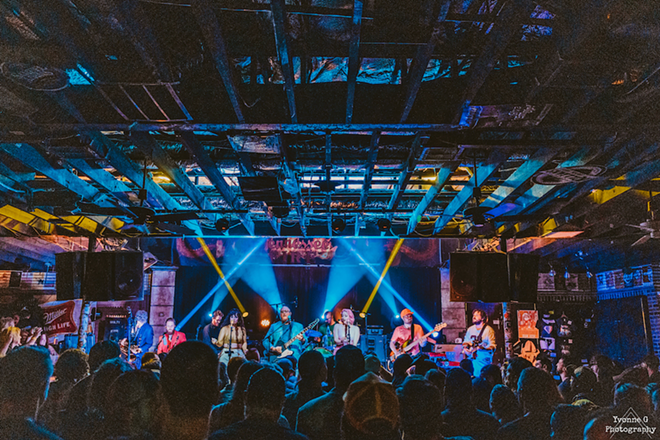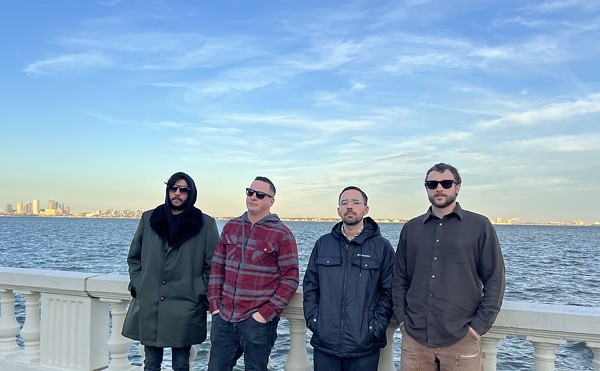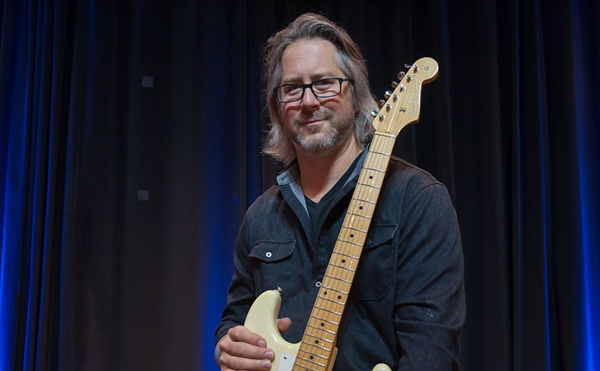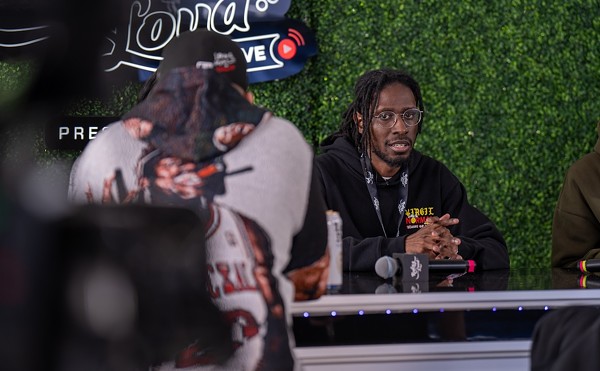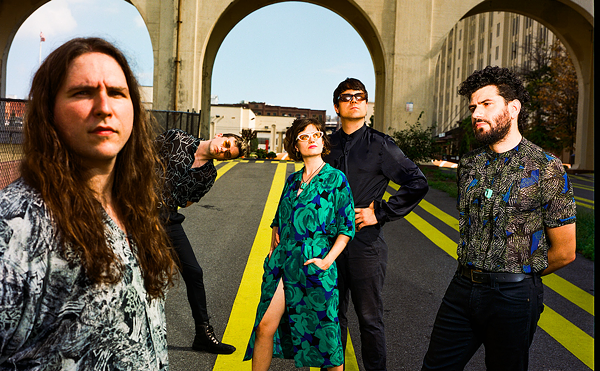Against all reasonable odds, a diehard group of about 40 independent venue owners and promoters marshalled their energies and got a $15 billion provision included in the $900 billion pandemic relief package that Congress passed and President Trump signed into law. It’s called the Save Our Stages Act, and it just might do what its name promises.
These people, who became instant lobbyists and called themselves “The Fuckers,” did the heavy lifting on behalf of a larger organization, the National Independent Venue Association (NIVA), which hastily formed just a few weeks after the coronavirus shut down live entertainment.
It looks like The Fuckers’ efforts will save many of the small, for-profit venues that have been hanging on by their fingertips for the last several months. The bill also provides much-needed funds for mid-size venues, promoters, theatrical producers, and some museums and movie theaters.
“I feel great,” said Tom DeGeorge, owner of Crowbar in Ybor City, on the morning of Monday, Dec. 21, when news had come out that the relief bill would pass. “We worked for nine months on this.”
He’s a Fucker. After DeGeorge accepted the role as NIVA’s “captain” for the state of Florida in April, he went from presenting club shows to being a full-time lobbyist virtually overnight.
RELATED
Tampa Bay's live music scene withstood the pandemic, but venues say the future is uncertain
As with anything involving federal legislation these days, there was some last-minute fuckery. On the evening of Tuesday, Dec. 22, President Trump emerged from his bunker and, as is his wont, threw sand in the vaseline. His demand for major last-minute changes to the relief bill was an apparent attempt to deep-six the delicate compromise—intended as a stop-gap measure—that centrist Republicans and Democrats in Congress had hammered out in recent weeks. After some hollow grandstanding, Trump signed the bill on Sunday, Dec. 27.
Save Our Stages, although it went through many iterations, was spared the last-minute changes and personal turkeys that so often get inserted in national bills. One of the biggest concerns among advocates was that large corporations like Live Nation, AEG, Hard Rock and House of Blues could get their hands in the kitty and grab up funds designed to aid independent operators. Those worries appear to have been allayed. The bill’s language expressly excludes businesses that operate in more than 10 states and employ more than 500 people, among other restrictions.
So what does all this mean for the concert business in Tampa Bay? Most important, it provides emergency relief for the little guy. Qualified businesses that suffered the biggest revenue losses during the shutdown should be first in line to receive aid. They’re expected to get grants—not loans—equaling 45% of their gross revenue during 2019 to go toward “costs incurred during the period beginning on March 1, 2020, and ending on Dec. 21, 2021.”
For small indie venues, a major portion of those costs is back rent. By and large, Tampa Bay landlords have been patient with clubs who might be up to six months in arrears. As a result, no venues, save Skipper’s Smokehouse, have closed during the pandemic, according to DeGeorge. Landlords have waited in large part because of the potential windfall that their live-music tenants were due to receive from Save Our Stages. That helped forestall evictions. Now that the legislation has passed, landlords will likely wait a bit longer for their money.
“I don’t know why they wouldn’t,” DeGeorge said. “It's their best chance to get their money back. If a tenant is six months behind, why not wait one more month and be made whole, especially seeing as the [overdue rent] is not the tenant’s fault? To evict now would see that back rent disappear.”
To be clear, DeGeorge was not guaranteeing that landlords will receive their back rent in a month. But advocates, both inside and outside of Congress, have indicated that they want to see the relief money dispersed quickly. The Small Business Administration-Office of the Inspector General is the agency tasked with running the program. Applications will have to be submitted, vetted and approved. DeGeorge’s understanding is that the application process should begin “shortly after the new year.”
Tony Rifiguato plans to apply. He owns and runs No Clubs Productions, a long-standing concert promotion outfit based in St. Pete. He described his financial situation as “right on the edge. [The bailout dollars] will keep me in business hopefully until fall, when we should be back to some version of what the concert business was about.”
But Rifugiato is not ready to do somersaults down the sidewalk. Although No Clubs is a member of NIVA, he was not directly involved in the lobbying initiative. Therefore, he’s hazy on what amount of money he might get in terms of revenue percentage, or when he might get it. “I’m also concerned that there will be enough money to go around,” he said. “I’d like to see the venues get it first. I’m not going to get all excited yet. We got excited when PPP [Paycheck Protection Program] came out and we saw what happened with that.”
Rifugiato was mostly referring to the huge companies, many of them sitting on massive stacks of cash and not in need of aid, that hogged much of the PPP money. When I told him that the language in the bill explicitly excludes large corporations, Rifugato replied, a little hesitantly, “Well, that’s good to hear.”
A measure of skepticism and a lot of questions on the part of live-music operators are understandable. But there’s reason to believe that, for the time being at least, Tampa Bay’s stages have been saved.
UPDATED 12/29/20 12 p.m. Updated since Trump Signed Save Our Stages into law.
Support local journalism in these crazy days. Our small but mighty team is working tirelessly to bring you up to the minute news on how Coronavirus is affecting Tampa and surrounding areas. Please consider making a one time or monthly donation to help support our staff. Every little bit helps.
Subscribe to our newsletter and follow @cl_tampabay on Twitter.

